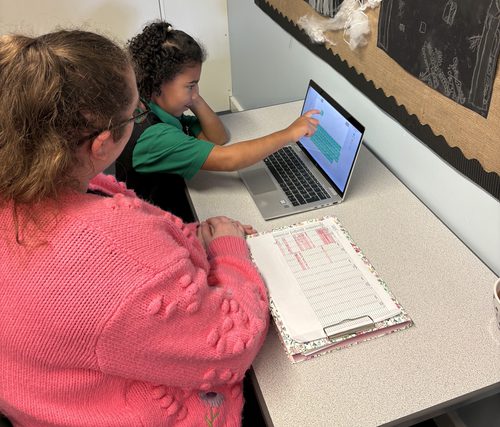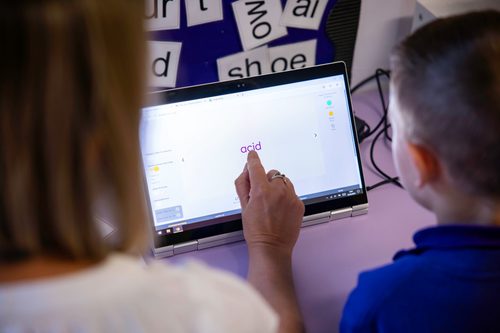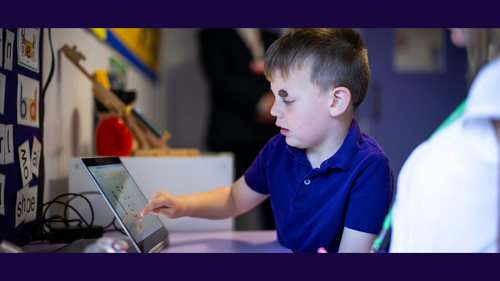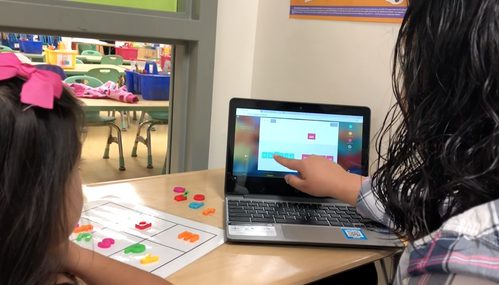ELI Impact Story: Roselands Infants’ School
Helping children to “be the best we can be”
Share this page
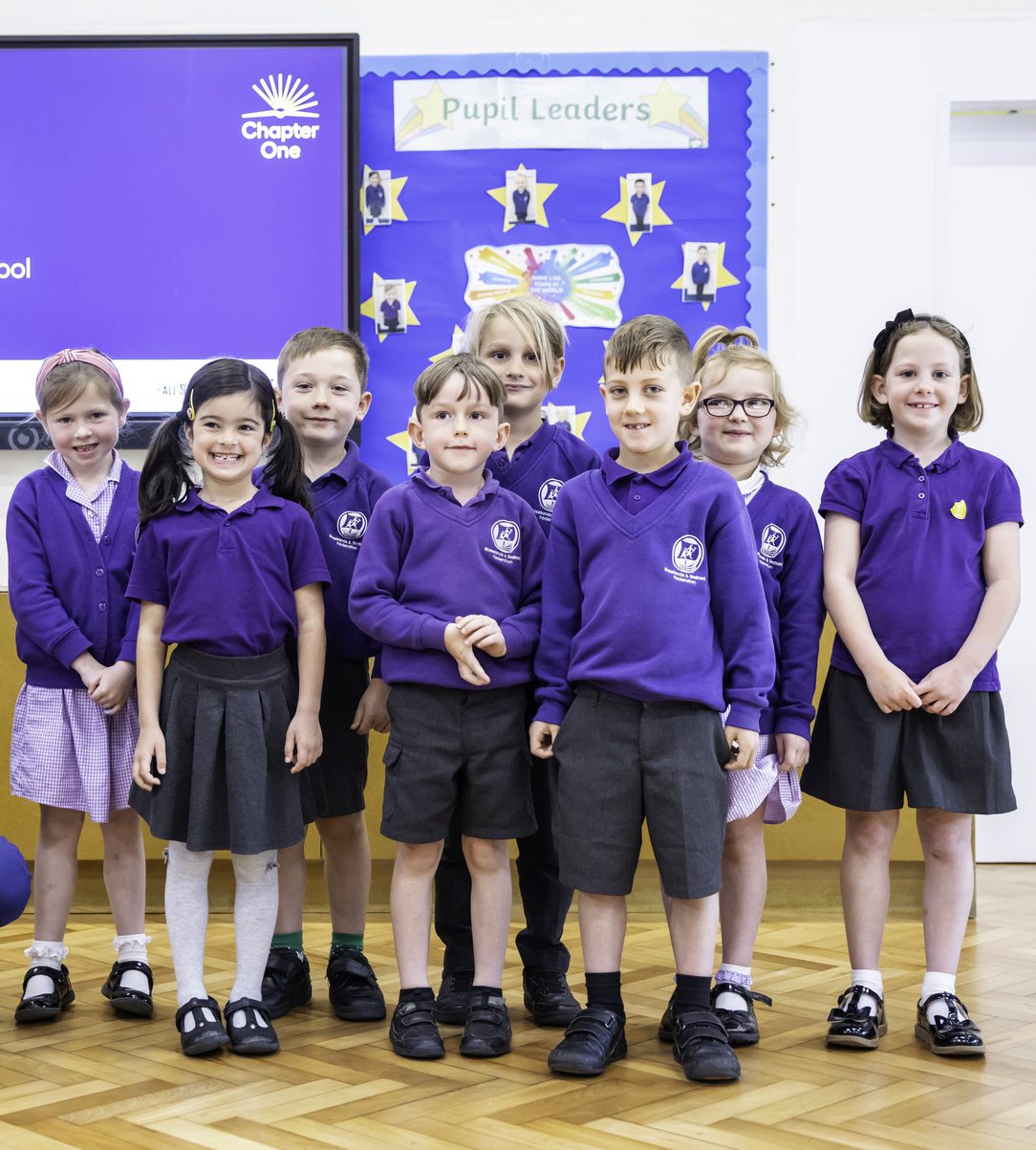
Roselands Infants’ School is a three-form entry school with 265 pupils, based in Eastbourne, East Sussex. Around 20% of learners are eligible for pupil premium, whilst 23% are pupils with English as an Additional Language (EAL). The staff at Roselands have a strong school vision, which is both aspirational and inclusive, encouraging children to strive to "be the best we can be" and placing literacy at the heart of the curriculum. This vision is set against a backdrop of significant literacy challenges in the county. According to 2024 statistics from the National Literacy Trust, 23% of five-year-olds in East Sussex started primary school without the early language and communication skills they need to learn. In the same year, 40% of children from disadvantaged backgrounds in the county left primary school unable to read and write well.
Innovating to make an impact
Roselands is committed to innovative and supportive teaching approaches that remove barriers and build children’s confidence and independence. Roselands began working with Chapter One in September 2023, initially participating in the Online Reading Volunteers Programme. In 2024, they expanded their provision to also include Chapter One’s Early Literacy Intervention (ELI) Programme, which provides daily in-school phonics keep-up sessions for Year 1.
Roselands achieved an 86% pass rate for the phonic screen this year and ELI played a big part in diminishing gaps for Year 1.
Carol Wallis, Head of School
One-to-one targeted support
Through the Early Literacy Intervention (ELI) Programme, Roselands receives a dedicated interventionist, employed by Chapter One, who attends school every morning to deliver targeted one-to-one ‘keep-up’ sessions.
Each session lasts just seven minutes, using a ‘short-burst’ approach which maximises children’s attention, whilst minimising the amount of time they spend away from lessons. Their ELI interventionist, Deborah, works with 20 pupils selected by the school.
When evaluating the programme at the end of the first year, the staff at Roselands commented: “Debbie has been amazing and so committed to the intervention. The pupils have enjoyed the sessions and made good progress.”
Head of school, Carol Wallis, said the ELI Programme has played a significant role in helping to close gaps in Year 1, which enabled them to achieve an 86% pass rate in their Phonics Screening Check.

Boosting confidence
Roselands has also noted a positive impact on children’s confidence. Year 1 class teacher, Jess Stevens, commented: "The ELI project has been such an asset to our school. The pupils who received these regular, consistent sessions have made great progress.”
She said that it is often difficult for schools to provide regular one-to-one support given that existing staffing is often “stretched”. Whereas Deborah ensures that each keep-up session always goes ahead.
Deborah has got to know the children well over the course of the year including their interests and individual challenges.
She said: “It is so rewarding to see how much progress children can make from a simple, regular routine, like ELI. I have seen them grow in confidence day-by-day and week-by-week.”
The pupil's confidence has grown, and they are always excited to attend their sessions. It also provided 1:1 time for our children who need it the most... I couldn't recommend the project more.
Jess Stevens, Year 1 Teacher
Ensuring fidelity
Deborah, the Chapter One ELI, is trained in the school’s core phonics programme (Sounds-Write) to ensure close fidelity to their chosen phonics progression. She uses Chapter One’s bespoke platform to provide a range of fun, guided activities, which are carefully matched to the sounds that children have already been taught.
Throughout each session, Deborah tracks each learner’s progress via the platform, marking when sounds have been mastered, or flagging them for additional practice.
The ELI programme supports fidelity by allowing children to work on their gaps in phonic knowledge. Precise gaps are targeted, and the sounds are consolidated.
Carol Wallis, Head of School
Deborah also has access to a wide selection of original, decodable texts within the Chapter One platform. This allows her to choose an appropriate text for children to read aloud in their sessions, to help apply and consolidate their phonics learning.
Deborah said: “the children always enjoy the decodable stories. The stories help us to work on their fluency as well as picking up on comprehension of key vocabulary.”

An ongoing partnership
Roselands staff meet with Chapter One four times a year to review pupil progress and discuss feedback. This provides frequent opportunities to review the list of participating pupils and discuss any emerging trends.
Feedback and insights are used to plan for the year ahead, as Chapter One continues to refine the tools and training available to Deborah to best support each new cohort of pupils.
Find out more
To learn more about how your pupils could benefit from Chapter One’s Early Literacy Interventionists, contact Kathryn Taylor at kathryn.taylor@chapterone.org
It all starts with literacy.
